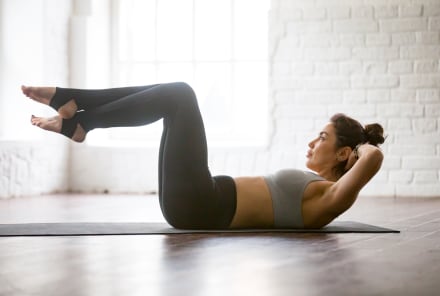Advertisement
Do This First Thing In The Morning To Sleep Better At Night

When do you start your sleep routine? Many will say somewhere in the 9-10 p.m. range, but in reality, our bodies start getting ready for bed hours beforehand—in fact, the process kicks off from the moment we wake up.
The quality of our sleep is shaped by the choices we make throughout the day—not just in the hour or so before lights out. By this logic, every day is a new opportunity to adopt habits that support restorative, uninterrupted rest. Here's a simple one that can help set your day (and night) off to a solid start in less than a minute.
The sleep-promoting power of making the bed
There's a reason so many of us were told to tuck in our sheets and fluff our pillows each morning growing up. Making the bed is a task that can be checked off the to-do list right away, prompting a quick feeling of accomplishment and establishing order. It may seem like a small win in the grand scheme of things, but when done consistently, it builds discipline.
Admiral William H. McRaven popularized this idea in his aptly titled book Make Your Bed: Little Things That Can Change Your Life...and Maybe the World, writing that "If you can't do the little things right, you will never do the big things right."
At the same time, making the bed reduces clutter and disarray in your sleep environment—potentially making it easier to start the day feeling more clearheaded. As author Gretchen Rubin says in her book Outer Order, Inner Calm, "No matter how busy I am, I force myself to take at least a few minutes each day to impose some order." If you find that the state of your environment impacts the state of your mind, then tidying up can boost mental clarity and help you feel more in control of your life more generally, she writes.
Not to mention, if you make your bed every day, you'll always have an inviting sleep space waiting for you when the time comes.
Now, no scientific studies have associated bed-making with improved sleep, and people who make the bed haven't proven to be any better rested than those who don't. There's no guarantee that adopting this habit (if you haven't already) will make a meaningful difference for you. However, there is research to show that having some kind of routine pays off in the sleep department.
According to the "structured day hypothesis," when people's days are more haphazard, they are more likely to take actions that can harm sleep and increase their likelihood of insomnia—and this holds true across different age ranges, from children1 to older adults2.
If you don't want to make your bed, or you're already doing it and are ready to tackle more, try out these other morning habits that play the long game on sleep.

Other morning rituals for better sleep
Open the blinds: Viewing light during the day is one of the best ways3 to regulate your circadian clock and internal sleep-wake rhythm. Make it a routine by ritualizing the act of opening your blinds each morning. Take a few deep breaths as you let the light in, gazing out to the sky above and the land below before getting on with the rest of your day. Make this initial light exposure even more powerful by stepping outside and getting some sun to send a strong signal to your body that it's time to wake up.
Get moving: Exercise can go a long way in enhancing energy during the day and building the desire to sleep at night. Any kind that you can do consistently is fantastic, but some studies suggest that resistance exercises are more effective for improving sleep (both reducing the time it takes to fall asleep and increasing the time spent sleeping) than cardio. For ideas on how to incorporate weightlifting or body weight moves into your routine (even if just for a few minutes), check out our complete guide to strength training.
Enjoy a mindful beverage: We can all learn something from nutritional psychiatrist Uma Naidoo M.D.'s morning routine, which always features a slow, mindful tea time. Naidoo notes that preparing and sipping on a hot beverage in the morning—be it turmeric or chamomile tea—can promote mindfulness and help you tune in to your body's intelligence for the rest of the day. Again, consistency and routine are important here, so find a blend or rotation of blends that you want to whip up on repeat. Might we suggest one of these six nutrient-dense options?
Journal: There are so many ways to use a journal as a morning companion—whether you do a stream-of-consciousness writing exercise, list out your intentions and priorities for the day, or take a minute to reflect on what you're thankful for. Certain practices like gratitude journaling have been associated with improvements in sleep quality, making this another morning ritual with benefits that can stick around until bedtime.
The takeaway
What you do first thing in the morning sets the stage for the rest of your day—and night. Whether you opt for a more active morning, pledge to make the bed, or just start opening your blinds more intentionally, remember: Small steps can ladder up to great success (and great sleep).

Short On Time? Try This Personal Trainer's 5-Minute Full-Body Workout
Krista Stryker, NSCA-CPT

Short On Time? Try This Personal Trainer's 5-Minute Full-Body Workout
Krista Stryker, NSCA-CPT

Short On Time? Try This Personal Trainer's 5-Minute Full-Body Workout
Krista Stryker, NSCA-CPT

Short On Time? Try This Personal Trainer's 5-Minute Full-Body Workout
Krista Stryker, NSCA-CPT









